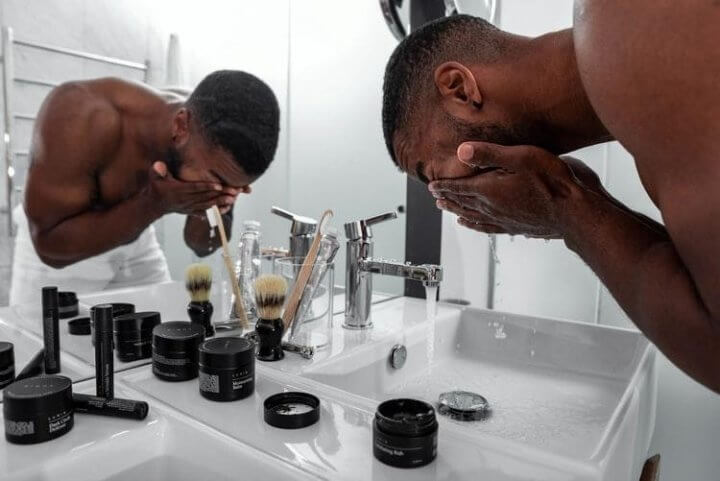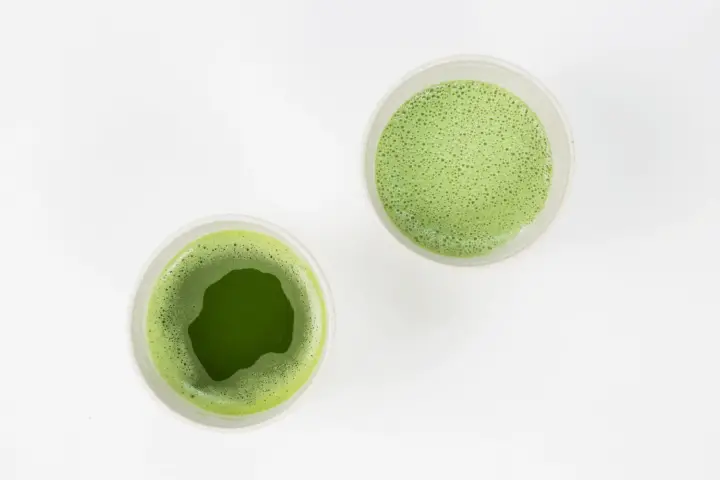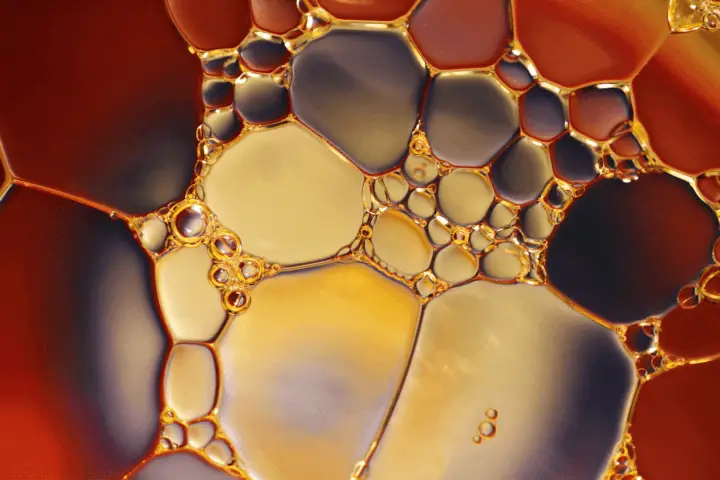
Plenty of skincare products promise to reduce the signs of aging, but do they really? To put together an effective anti-aging skincare routine, you need to know what words to look for on the packaging, what ingredients to search for, and what they mean. Don’t worry, though. We’ve got you.
AHA and BHA
AHA stands for Alpha Hydroxy Acid, which is naturally found in sugary fruits. The most helpful AHA for your skin is glycolic acid. It’s derived from sugar cane, explaining why sugar scrubs are good for exfoliating your skin. AHAs, especially glycolic acid, can penetrate your skin deeply. As a result, it can treat acne, blackheads, and fine lines. Bear in mind, however, that sugar is only good for your skin when applied topically or as an ingredient in a skincare product. Don’t go around eating a bunch of sugar because you think that it will make you look younger!
BHAs, or Beta Hydroxy Acids, work in much the same way as AHAs. One is no better or more beneficial than the other. For instance, BHAs can also reduce acne, blemishes, and wrinkles. Both acids can get rid of inflammation, refine and unclog your pores, balance your complexion, and improve the texture of your skin as a whole.
The only real difference is that Alpha Hydroxy Acids are water-soluble. Beta Hydroxy Acids, on the other hand, are oil-soluble. They can also dig deeper into your pores than AHAs, so those looking for more powerful anti-aging and acne reducing effects may want to gravitate towards BHAs, as they work better for reducing excessive amounts of sebum.

Antioxidants
Antioxidants are central in any anti-aging skin care regimen. Antioxidants fight off free radicals and the damage that they cause to collagen, which we’ll discuss in a second. Many nutrients and vitamins classify as antioxidants, including vitamins A, C, and E, beta-carotene, folic acid, L-ascorbic acid, and niacinamide. In addition to finding antioxidants in your skincare products, you can also consume them in your daily diet via acai berries, green tea, and white tea. Similarly, you can keep an eye out for anti-aging skincare products, such as lotions, moisturizers, and toners, that have those listed as ingredients.
Collagen (and Elastin)
Collagen and elastin are often mentioned together, because they’re both important proteins. Collagen is your skin’s primary building block. It gives your skin its firmness and structure. When it breaks down or when your body stops producing as much, it can cause your skin to appear saggy, sallow, and wrinkled.
Elastin comes into play because it’s responsible for your skin’s elasticity and “snap-back” ability. Without it, your smile lines and frowning furrows begin to become more permanent. Boosting your body’s collagen production can help with that. It works hand-in-hand with elastin to ensure that your skin remains firm, smooth, and unblemished.
As you create an anti-aging skincare regimen, search for products that promise to enhance collagen production, and protect your elastin. You can also look for anything that hydrates and plumps your skin. Although drinking water doesn’t boost your collagen, it will keep your skin moisturized from the inside out — and that is helpful.
Ceramides
Not only do ceramides occur naturally in the body, but they’re also a can’t-miss ingredient in anti-aging products. That’s because they retain water like nobody’s business. Within your body, ceramides form the layer of fatty lipids within your skin. There, they aid in trapping moisture, which also creates a barrier for your skin, protecting it from drying out and becoming dull.
When a skincare product contains ceramides, you know that it’s going to pack your skin with moisture. This is great because hydration is a key element in fighting the signs of aging because it plumps skin for a smoother complexion.

Free Radicals
You know those free radicals we were talking about when we mentioned antioxidants? Let’s go back to that subject. Free radicals are the worst. No matter who you are or what you do, your skin is vulnerable to free radicals—unless you care for it properly.
Free radicals mainly come from UV rays, so anytime you’re outside, you’re exposed. Yes, even on seemingly cloudy days. Free radicals are just atoms, which wouldn’t be so bad except that they’re missing one of their electrons. As a result, they try to steal electrons from the collagen in your skin.
Not only is that rude, but it can cause profound damage to your skin. Collagen begins to break down, leading to the appearance of fine lines and wrinkles. Your skin also loses some of its elasticity. That’s why it’s essential to look for skincare that protects your skin from free radicals. You should also wear a layer of sunscreen +30 SPF or higher whenever you spend time outside.
“Glow”
When many of us see the word “glow” on skincare products, we think of fake bronzers, metallic highlighters, or products made primarily for women. While that can be right in some instances, “glow” is actually an important anti-aging word to keep an eye out for.
The skincare industry is on track to replace “anti-aging” with “glow” because it doesn’t have the same negative connotations. Instead of purchasing anti-aging products, keep an eye out for packaging that promises to give you an enviable glow, because what they really mean is minimized fine lines and a brighter complexion.
Hyaluronic Acid
Your body already produces hyaluronic acid, which isn’t an acid in the way you may think. It’s essential for hydration because one molecule of hyaluronic acid holds as much as 1,000 times its weight in water. To say that it keeps your skin hydrated is an understatement, so don’t make the mistake of believing that “acid” means it will dry or be too abrasive for your skin.
The problem is that, as you get older, your body stops producing as much hyaluronic acid, and that can cause your skin to dry out, which in turn makes it look older. No one wants that. Fortunately, you can supplement the hyaluronic acid in your body by choosing products that list it as a primary ingredient. It’s particularly popular in toning products, such as liquid toners and facial sheet masks. Long-term use is beneficial, but it will also moisturize your skin and make it appear younger in the short-term.

Jojoba Oil
Jojoba oil is the next big thing in skincare, although it’s not new by any means. Face oils have many benefits, especially when you want to hide the physical sides of aging. Jojoba oil is not like other oils; it won’t clog up your pores or make your skin look oily. It actually mimics the oils that already occur in your skin, so it’s great to use when you’re dealing with dryness or irritation.
Niacinamide
It’s a mouthful to say, but niacinamide is a must-have anytime you’re dealing with irritated or red skin. Niacinamide comes from vitamin B3. It soothes inflamed or painful skin and helps to banish redness, as well. Consider products with niacinamide to help with acne, rosacea, and similar skin conditions. It can even help with uneven pigmentation.
Peptides
You might say that peptides give your skin pep. As a collagen stimulator, peptides were so popular that, once upon a time, brands touted their health foods as being full of peptides. While they certainly make for a beneficial addition to any skincare routine, you’ll find that many anti-aging products contain collagen enhancing ingredients of some kind.
Anything that contains peptides, which are helpful amino acids, should help to decrease any lines or wrinkles in your face. When checking to see if a product contains peptides or not, keep an eye out for the many names and forms of the amino acid, including Acetyl hexapeptide-8, Palmitoyl Tripeptide, and Pentapeptide.
Retinol
Retinol is a powerhouse in the world of anti-aging skincare. It often shows up as an ingredient in any product that promises to reduce the appearance of wrinkles and other fine lines. That’s because it boosts your body’s collagen production which, as we know, is vital for firmer, younger-looking skin. It can also exfoliate your skin. By scrubbing away dead skin cells and other debris, retinol can leave you with that “glow” we discussed, making your complexion brighter and smoother. As if that’s not enough, retinol amps up the production of new skin cells, too. So while it sloughs off dead or dry skin and debris, it also simultaneously encourages regeneration. No wonder it’s a skincare must-have.

Vitamin C
As we briefly talked about, vitamin C is an antioxidant. It’s full of advantages for your skin. It stimulates your body’s production of collagen and doesn’t allow your skin to produce an excess of pigmentation, keeping your complexion balanced and even. It may even be able to fade age spots and other discolorations. Another benefit is its ability to neutralize damage caused by pollution and UV rays.
Now that you know what to look for, you can select anti-aging skincare products that will produce results. How do you fight the signs of aging?
About The Author:
 Tess DiNapoli is an artist, freelance writer, and content strategist. She has a passion for yoga and often writes about health and wellness. She has also worked with a number of companies in the beauty industry such as Ciel Spa and Pearl Recovery Retreat.
Tess DiNapoli is an artist, freelance writer, and content strategist. She has a passion for yoga and often writes about health and wellness. She has also worked with a number of companies in the beauty industry such as Ciel Spa and Pearl Recovery Retreat.

